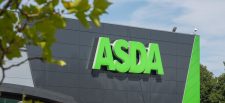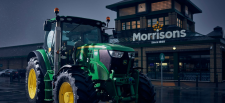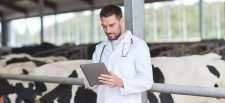Due to ongoing outbreaks of avian influenza (AI), consumers in the UK can no longer purchase free-range eggs as hens continue to be kept indoors.
Eggs in shops will now be labelled as “barn eggs” due to birds being kept inside for more than 16 weeks.
As the free-range hens are only temporarily housed for their wellbeing, producers will continue to use free range packs. In addition, each egg will be marked with a number 2 to signify that it is a barn egg, for example 2UK54321, which is explained on each pack.
The UK has been hit by what government officials have said is the “largest ever outbreak of avian flu” this winter, with more than 80 reported outbreaks in England.
The National Farmers’ Union chief poultry adviser Aimee Mahony said: “Shoppers may notice different labels on egg packs explaining that the eggs have been laid by hens temporarily housed to protect their health and welfare. Once the risk levels have reduced and the housing measures have been lifted by Defra, birds will be able to go outside again.”
Mark Williams, chief executive of the British Egg Industry Council, said: “Our priority is to ensure that consumers are well informed of the changes that are being made. We would ask all retailers to ensure that they have clear signage in store, and we have provided some examples on our website freerangeinfo.com, which they are very welcome to use.”
First discovered in Yorkshire the case numbers of the H5N1 strain of bird flu began rising in November last year. The virus – which is highly contagious, can destroy poultry flocks but poses minimum risk to human health.
Both “barn” and “free range” eggs meet the RSPCA’s welfare standards, because the hens that lay them have freedom and space to move around, along with perches for roosting and nest boxes.









